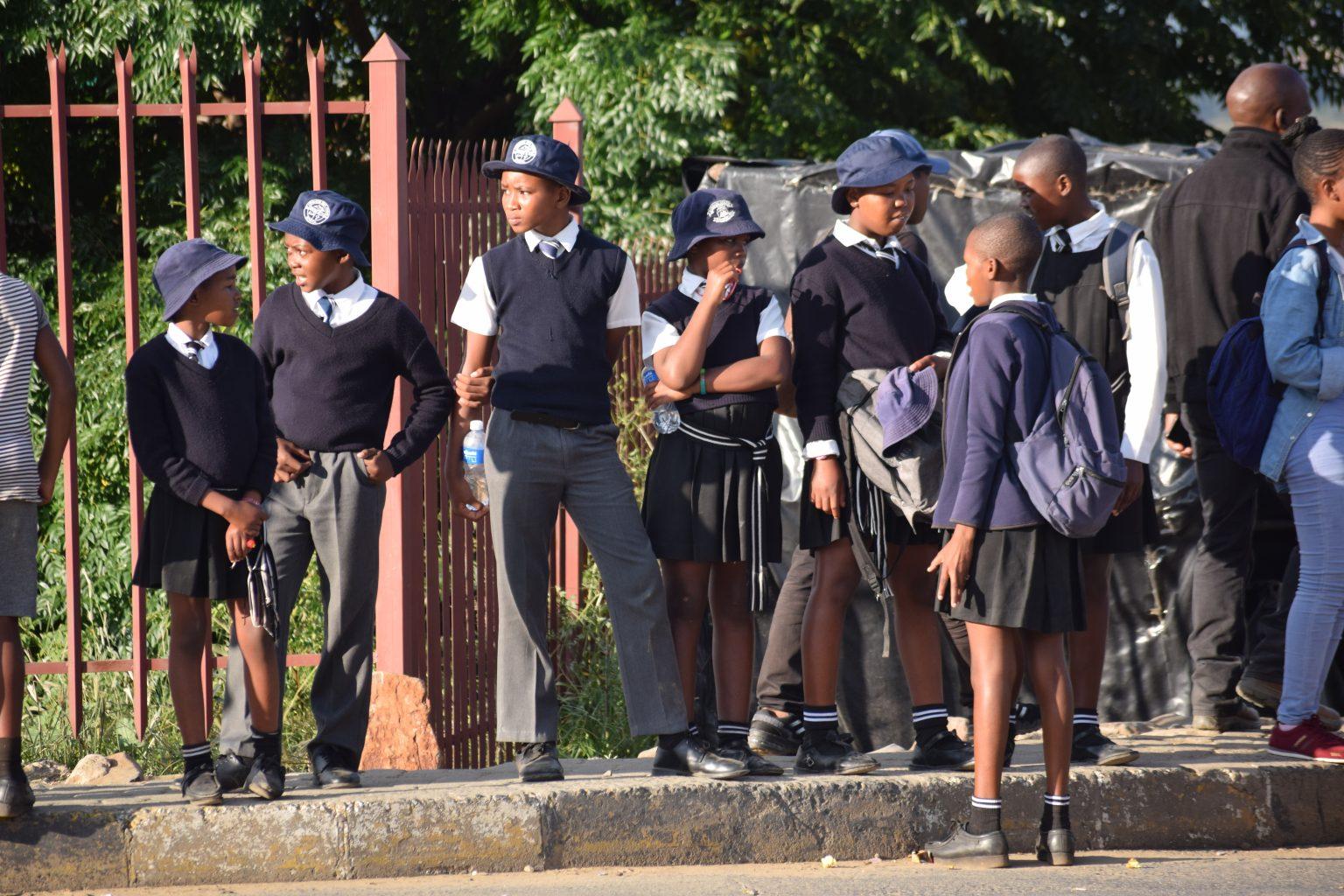Africa-Press – Lesotho. The government of Japan through the World Food Programme (WFP) has provided food aid worth JPY250 million (about M31 million) for the school feeding programme.
The donation is aimed at providing food and nutrition assistance to 60 000 pre-primary school children in Early Childhood Care Development (ECCD) at 2 000 early child care centres across the country for two years.
Three months ago, thousands of primary school students were on the verge of starvation because catering companies had suspended services due to delayed payments from the government.
This led to a number of students dropping out of school particularly those who relied on the school feeding programme to keep hunger at bay. According to the Lesotho Vulnerability Assessment Committee, July 2022, about 521 000 people are food insecure (320 000 rural and 201 000 urban) and need humanitarian support.
The Ambassador of Japan, Norio Maruyama, says Lesotho is facing prolonged deterioration in food security, high commodity prices and Covid-19 negative impacts.
“They are to worsen the nutrition situation around the end of this year,” Maruyama said. Maruyama said Japan decided to provide food assistance including tinned fish (about 230 tons) and fortified food (about 510 tons) to Lesotho.
“This meal will be served during lunch time, supplementing the specialised nutritious mid-morning porridge prepared from super-cereal-plus, also provided by the WFP,” he said.
“The aid is aimed at improving food security, and support the economic and social development of the country,” he said.
“We would like to continue to contribute toward improving the livelihood of vulnerable people in Lesotho.
The WFP Country Director, Aurore Rusiga, said the contribution through the Kennedy Round Food Assistance will support the food security and nutrition of vulnerable children.
“This outstanding support not only saves lives as short-term benefit, but also promotes the changing lives agenda through resilience building,” Rusiga said.
She said the support came at a critical time of a global food crisis when the world is breaking records in numbers of food insecure people due to climate shocks, high food and fuel prices.
“Lesotho is also hardly hit and the food insecure population is likely to increase further due to decreased livelihood opportunities and increased food and non-food commodity prices,” she said.
She also said the contribution comes at a time when more voices are raising awareness about the importance of investing in “learning beyond investing in the pupil”. She encouraged paying more attention to inequalities that affect the children’s ability to learn, like rising poverty, hunger and malnutrition.
“Work with health, social protection and food security sectors to create a conducive environment for education and avoid the long-term effect of today’s global food crisis that could result in human capital loss for the future,” she said.
She said through the contribution, the WFP will bridge the food security gap and ensure “continuous and undisrupted” provisions of school meals. “Supporting the pre-school pupils, majority of them whom are orphans and vulnerable children from rural areas with high rates of malnutrition, will help this group attain their food security and nutritional needs.
The Ministry of Education’s Principal Secretary of Basic Education, Dr Lira Khama, said the school feeding programme contributes to efforts to address social challenges confronting several vulnerable groups in communities such as malnutrition, under-nutrition, stunting and low enrolment rates at pre-primary and primary levels.
“Over the years, this invaluable contribution has indeed made school feeding one of the largest safety-net programmes in Lesotho,” Dr Khama said.
Dr Khama said ample studies have also shown that “a well-designed school feeding programme can be a panacea for some of the bottlenecks persisting in our education system”.
He says school feeding is critical in addressing nutrition challenges faced by children in Lesotho, particularly when the diet provided includes macro and micronutrients to support the physical and mental development of children at the critical age group of two to three years found in pre-schools.
“The provision of school meals has thus proven to be even more critical in addressing these challenges faced by Basotho children from underprivileged families,” he said.
He says the ministry recognises school feeding as an investment and not an expenditure. He says there is evidence to suggest that improved nutrition leads to improved cognitive capacities of children.
He further said other benefits of school feeding include improved school attendance and access. “We are aware that many children attend school because it is a place where they can access a decent meal.
Additionally, he said hunger and malnutrition have adverse effects on the physical and mental health of children and negatively affects their behavioural and emotional development.
“Therefore, children are at the core of the school feeding policy.
This augurs well with the rights of the child, especially Article 4 on the Protection of Rights, which requires governments to create environments where children can grow and reach their full potential.
Dr Khama said under-nutrition and stunting is high at 43 percent among children aged two to three, the majority of whom are found in pre-schools hence their gratitude to Japan and the WFP for focusing on supporting this age group.
He assured their partners that the ministry will do everything possible to ensure that the food commodities reach those that they are intended for. Foreign Affairs Minister, ’Matšepo Molise-Ramakoae, said the donation advances further the solid cooperation between the two countries.
“This donation will go a long way in the history of our bilateral relations with Japan which spans across a myriad of sectors. It has grown, deepened and matured over the years,” Molise-Ramakoae said.
“It provides an opportunity for us to reflect on our relations and further intensify our cooperation for the mutual benefit of our people,” she said.
Molise-Ramakoae said it comes at a time when Lesotho is registering the lowest harvest of summer cropping due to the torrential rainfall that has besieged it throughout the last summer season.
“This noble gesture will beyond a reasonable doubt make a positive impact, particularly to those young and vulnerable children who might otherwise have access to food due to the ever-increasing scourge of food insecurity in the country.
“It is our fervent hope that the relentless efforts Japan is making through the noble initiative will continue to shape the socio-economic development of our country and Africa as a whole.”
For More News And Analysis About Lesotho Follow Africa-Press






